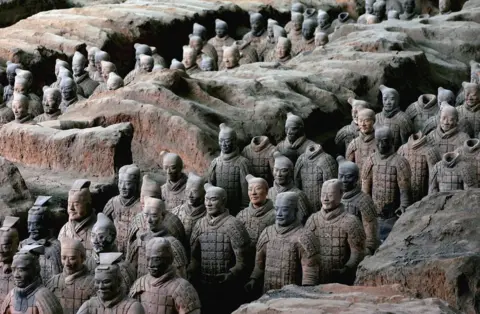How China's first emperor searched for elixir of life
 China Photos/Getty Images
China Photos/Getty ImagesChina's first emperor launched an obsessive search for the elixir of life before dying aged 49 in 210 BCE, new archaeological research has revealed.
Qin Shi Huang, who created the world-famous terracotta army, ordered a nationwide hunt for the mythical potion.
The quest is mentioned in 2000-year-old texts written on thousands of wooden slats - used in China before paper.
They were found in 2002 at the bottom of a well in central Hunan province.
The writings contain an executive order issued by the emperor, and assorted awkward replies from regional governments who had failed to find the key to eternal life.
One locality, Langya, apparently believed that "an herb collected from an auspicious local mountain" could fit the bill.
Qin Shi Huang's terracotta warriors were further evidence of how seriously he took mortality. The 8,000 soldiers depicted his armies, including horses and chariots.
When he died, they were arranged in his huge mausoleum to protect the emperor in the afterlife.
